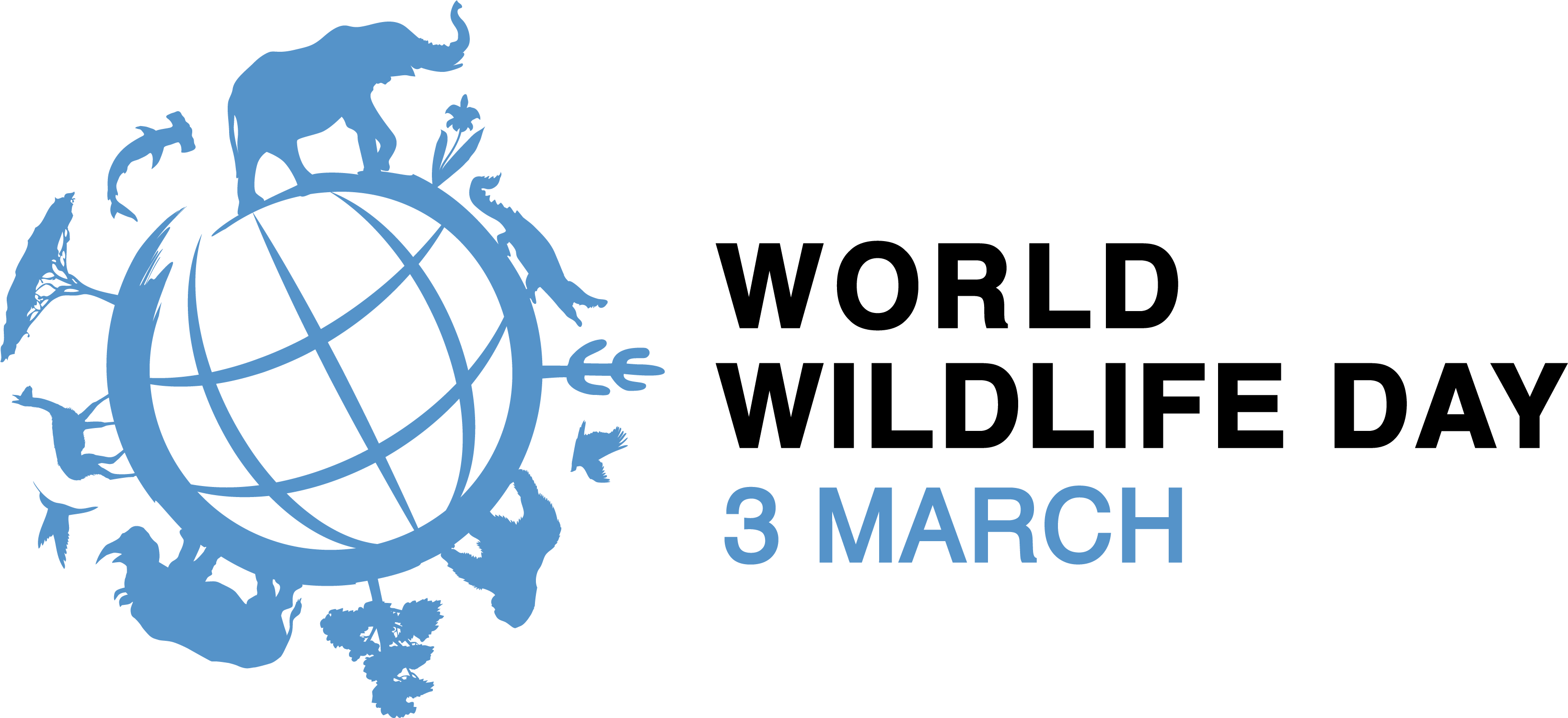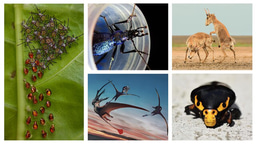Celebrating World Wildlife Day 2025: BMC Series Reviews in Focus
Published in Earth & Environment, Ecology & Evolution, and Zoology & Veterinary Science

This year's United Nations World Wildlife Day theme, "Wildlife Conservation Finance: Investing in People and Planet" encourages us to think about how to more effectively and sustainably fund wildlife conservation efforts. Addressing these challenges is key to building a resilient future for both people and the planet. Here, we spotlight two recent BMC Series reviews that explore strategies and address challenges related to marine and amphibian conservation funding. 
BMC Ecology and Evolution - The pillars of the sea: strategies to achieve successful marine citizen science programs in the Mediterranean
.jpg)
Bridging conservation with sustainable economic opportunities is key to long-term success. A BMC Ecology and Evolution review explores how we can use Marine Citizen Science (MCS) to support biodiversity monitoring and create new career paths and business models within the Mediterranean's scuba diving sector.
The review outlines three key pillars that highlight the effectiveness and long-term sustainability of MCS:
- using MCS to collect data from sites to enhance their ecological value,
- creating new career opportunities for marine science graduates, and
- providing economic benefits to diving centres through conservation-driven tourism.
These pillars align with the Quintuple Helix Model, emphasising the need for social and economic transitions to address environmental challenges.
Several European-funded projects such as Green Bubbles, CIGESMED, and Interreg Med MPA Engage have established MCS initiatives in the Mediterranean. Programs like Reef Check Italia, Observadores del Mar, Reef Alert Network, DORIS, and iNaturalist enable citizen scientists to monitor marine ecosystems through visual assessments and photographic documentation. The review identifies four factors that have contributed to successful MCS initiatives: digital platforms for data sharing, social media strategies for engagement, training programs to equip volunteers with the skills needed for high-quality data collection and expert data validation to ensure scientific accuracy before data enters biodiversity databases.
Challenges include inconsistent training and non-standardised protocols, limiting participants' scientific credibility and long-term commitment. Addressing these issues through structured engagement strategies can strengthen MCS as a powerful tool for conservation and sustainable economic development in the diving sector.
BMC Genomics - The Amphibian Genomics Consortium: advancing genomic and genetic resources for amphibian research and conservation
.jpg)
The Amphibian Genomics Consortium (AGC) is an international initiative to advance genomic research on amphibians to develop our understanding of their biology, evolution, and conservation needs. Amphibians face unprecedented threats from habitat loss, climate change, pollution, and disease, yet they are often understudied. Currently, 41% of amphibian species are at risk of extinction, but they receive only 2.8% of global vertebrate conservation funding, in contrast to birds and mammals, which receive 85%. The AGC aims to tackle these challenges by securing funding to sequence priority amphibian species and offering funding and training opportunities to enhance collaboration among underrepresented groups, molecular and organismal biologists, bioinformaticians, and conservation practitioners.
A recent review published in BMC Genomics highlights the efforts of the AGC to sequence and analyse amphibian genomes. The review discusses the challenges in amphibian genomics, including large and complex genomes, high levels of genetic diversity, and difficulties in obtaining high-quality DNA samples. These challenges have historically limited the progress of amphibian genomic research compared to other vertebrates.
Researchers are using new sequencing technologies and bioinformatics tools to overcome these obstacles. The review highlights key findings from recent genomic studies, including insights into amphibian immune systems, adaptation to environmental stress, and evolutionary history. One major focus is on understanding disease resistance, particularly in relation to chytridiomycosis, a fungal disease responsible for devastating declines in amphibian populations worldwide.
The review emphasises the importance of genomic data in conservation strategies. By identifying genetic factors that contribute to resilience or vulnerability, scientists can inform targeted conservation efforts, such as captive breeding programs and habitat restoration projects. The review underscores the need for continued international collaboration and funding to expand genomic resources and improve data-sharing platforms to protect this vulnerable group of animals.
Call for papers!
If you're interested in learning more about how we can protect wildlife, explore the following BMC Series article collections that are currently open for submissions:
- BMC Ecology and Evolution: Citizen Science in Ecological Research
- BMC Genomics: Genomics of Engandered Species
- BMC Zoology: Endangered species and conservation challenges
- BMC Zoology: Marine Mammals: Adaptations, challenges and conservation strategies
- BMC Veterinary Research: Epidemiology and Management of Ectoparasites in Wildlife
Follow the Topic
-
BMC Ecology and Evolution

An open access, peer-reviewed journal interested in all aspects of ecological and evolutionary biology.
-
BMC Genomics

This is an open access, peer-reviewed journal that considers articles on all aspects of genetics, genomics and proteomics.
-
BMC Zoology

This is an open access, peer-reviewed journal that considers articles on zoology, including comparative physiology, mechanistic and functional studies, morphology, life history, animal behavior, signaling and communication, cognition, parasitism, systematics, biogeography and conservation.
-
BMC Veterinary Research

This journal considers articles on all aspects of veterinary science and medicine, including the epidemiology, diagnosis, prevention and treatment of medical conditions of domestic, companion, farm and wild animals, as well as the biomedical processes that underlie their health.
Related Collections
With Collections, you can get published faster and increase your visibility.
Bioacoustics and soundscape ecology
BMC Ecology and Evolution welcomes submissions to its new Collection on Bioacoustics and soundscape ecology. By studying how animals use sound and how noise impacts them, you can learn a lot about the well-being of an ecosystem and the animals living there. In support of the United Nations Sustainable Development Goals (SDGs) 13: Climate action, 14: Life below water and 15: Life on land, the Collection will consider research on:
The use of sound for communication
The evolution of acoustic signals
The use of bioacoustics for taxonomy and systematics
The use of sound for biodiversity monitoring
The impacts of noise on animal development, behavior, sound production and reception
The effect of anthropogenic noise on the physiology, behavior and ecology of animals
Innovative technologies and methods to collect and analyze acoustic data to study animals and the health of ecosystems
Reviews and commentary articles are welcome following consultation with the Editor
(Jennifer.harman@springernature.com).
Publishing Model: Open Access
Deadline: Mar 27, 2026
Ecology of soils
BMC Ecology and Evolution invites researchers to submit their work on soil ecosystems and their implications for environmental sustainability. Soils are living, dynamic systems that support a vast array of organisms, from tiny microbes to plants and animals. They play a vital role in keeping our planet healthy by recycling nutrients, storing carbon, and helping regulate water and climate. Understanding how soil life functions and adapts is essential for tackling major environmental challenges like climate change, habitat loss, and soil degradation.
This collection of articles aims to showcase the latest research in soil ecology, emphasizing the interactions among soil organisms, biogeochemical processes, and ecosystem functions across various landscapes. We invite submissions that explore the following topics:
•Microbial and faunal diversity in soils: Patterns, drivers, and functional roles of bacteria, fungi, protists, and invertebrates
•Soil biogeochemistry and ecosystem functioning: Nutrient cycling, carbon sequestration, and soil health in both natural and managed ecosystems
•Soil-plant interactions: Rhizosphere processes, plant-microbe symbioses, and their effects on vegetation dynamics
•Land use and climate change impacts on soil communities: Responses of soil biodiversity and functions to agricultural intensification, urbanization, pollution, and climate shifts
•Soil metagenomics, phylogenetics, and functional ecology: Advances in molecular approaches for studying soil microbial and faunal communities
•Conservation and restoration of soil ecosystems: Strategies for maintaining soil biodiversity and ecosystem services in degraded landscapes
All manuscripts submitted to BMC Ecology and Evolution, including those submitted to collections and special issues, are assessed in line with our editorial policies and the journal’s peer review process. Reviewers and editors are required to declare competing interests and can be excluded from the peer review process if a competing interest exists.
This Collection supports and amplifies research related to SDG 15: Life on Land.
Publishing Model: Open Access
Deadline: Jun 02, 2026





Please sign in or register for FREE
If you are a registered user on Research Communities by Springer Nature, please sign in